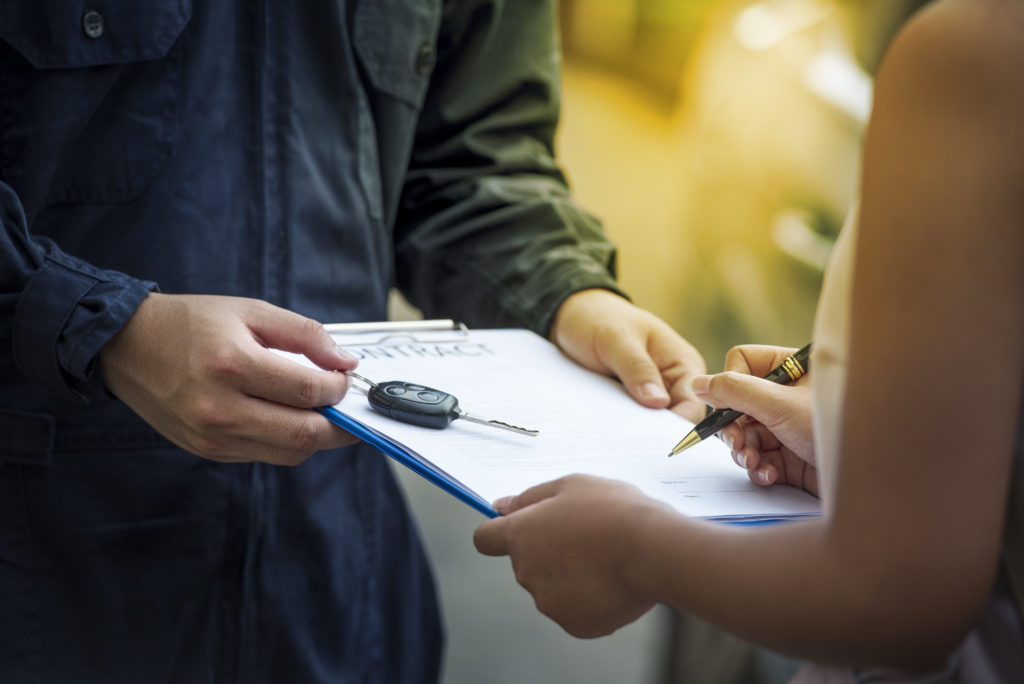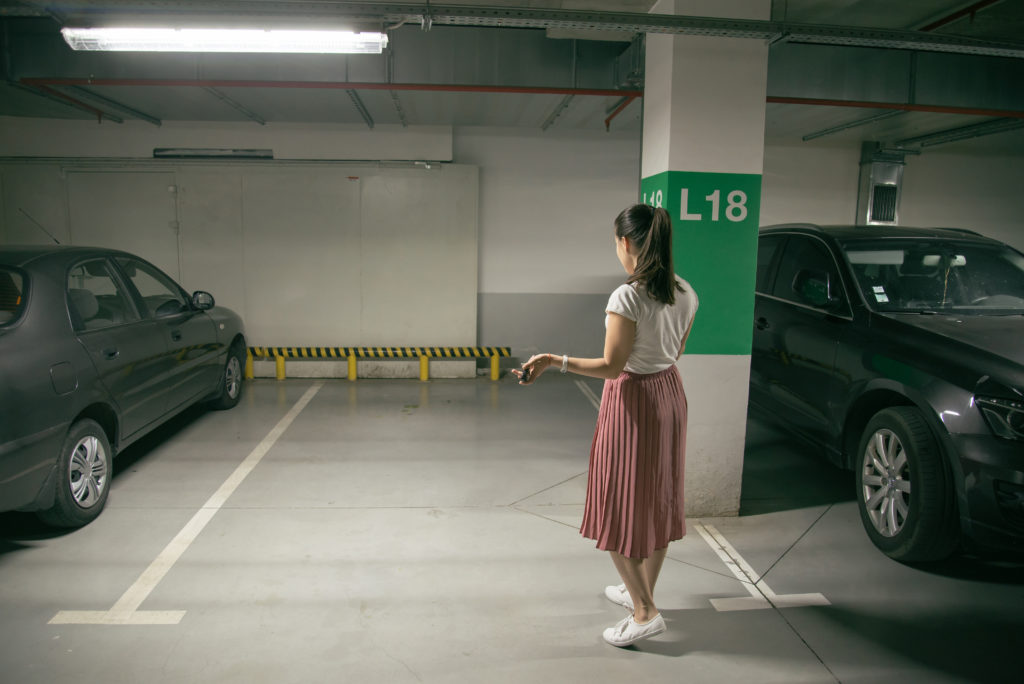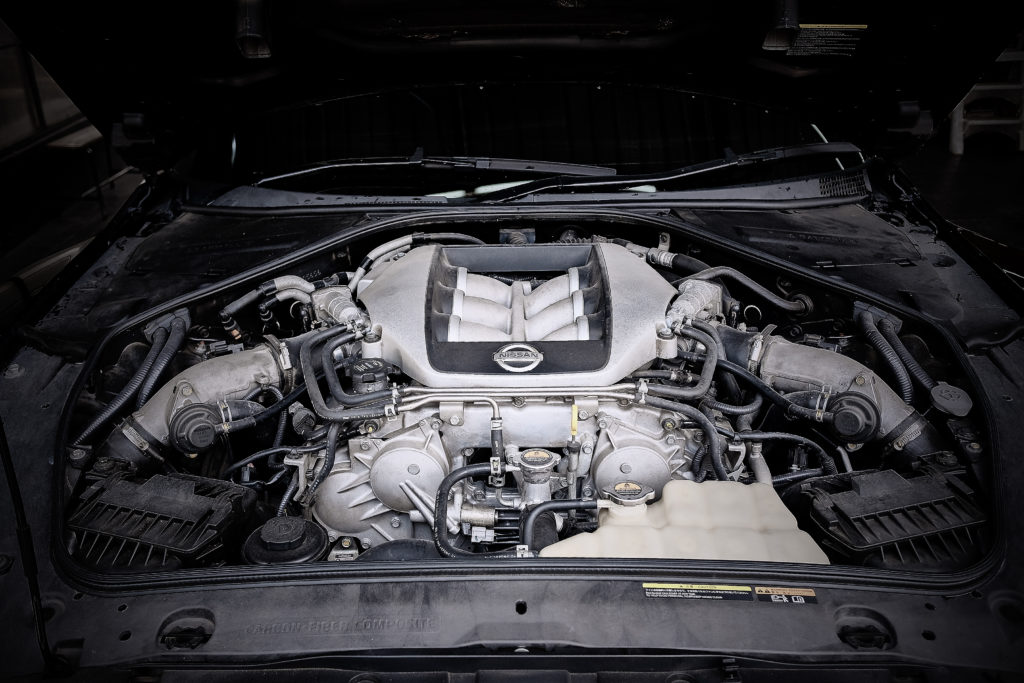How to Avoid Used Cars Scams.
There's nothing worse than thinking you've struck gold after buying a used car – only to find a string of hidden issues! Most people purchase used vehicles to avoid paying a hefty price for a brand new car, but if you don't know how to tell the difference between a decent dealer and a scammer, you can end up incurring more debts than you were hoping to save.
The best way to protect yourself from used car fraud is to learn how to identify the most common types. In this guide, we'll clue you in on eight of the most popular forms of fraud, as well as the telltale signs that indicate you're being scammed. Once you learn these common dupes, you'll be able to dodge shady dealers and walk away from bad deals.
8 Used Car Scams And How To Spot Them
These days, scammers are finding innovative ways to cheat naive buyers into purchasing damaged or tampered vehicles. Here are eight dupes to keep an eye out for:
1. Curbstoning
Curbstoning is when auto dealers pretend to be private sellers. The scam is named after the common practice of advertising and selling vehicles on the side of the road. By conducting transactions at random locations, dealers can evade disgruntled buyers who have been duped into purchasing defective units.
Why does curbstoning happen? Sometimes, a dealer gets stuck with a lemon – a vehicle that's plagued with persistent issues. So, to get out of having to pay for a warranty or comply with certain regulations, dealers hide their true identity and get rid of their lemons while shirking accountability.
Telltale signs of curbstoning:
- The vehicle is being sold on the side of the road or a parking lot instead of at a dealership.
- The seller won't tell you their full name.
- The seller's name on the title does not match the name on their driver's license.
- The seller won't let you inspect or test the vehicle before purchasing.

2. Title Washing
When a vehicle is significantly damaged, whether in a flood, a fire, or a major collision, it's branded by the transportation ministry as either irreparable, salvage, or rebuilt. Irreparable vehicles are cars deemed too damaged for any sort of repairs – this type of vehicle CANNOT be driven. Salvage vehicles can either be repaired or taken apart for spare parts and can only be driven once their status is upgraded to rebuilt.
Because of the risks associated with salvage and rebuilt vehicles, most buyers aren't interested in them, and buyers who are interested are only willing to spend so much. So to get more out of salvaged or rebuilt vehicles, some scammers will cover up a vehicle's history of damage. Some will even register the vehicle in a different province, where agents at the department/ministry of transportation might not recognize the signs of a rebuilt/salvage vehicle.
In essence, these scammers "wash" the title of its history and pass it off as issue-free.
Tell-tale signs of title washing:
- If the vehicle is registered in a different province.
- If your seller refuses to give you the Vehicle Identification Number (VIN). This number tracks a vehicle's entire history. If it's being withheld, your seller may be trying to hide something.
- For flooded vehicles, there could be dried up mud and water lines in hard-to-clean spots. Check both the exterior and interior.
- Rust build-up under the hood is another sign of flooding.
- Brand new interiors could also be a sign that the vehicle has been rebuilt following flooding.
- Switch on the AC and check for a foul smell – this indicates bacteria left behind by floodwater.

3. Hidden Fees
For first-time buyers, sifting through the paperwork can be overwhelming. But if you don't take the time to read the fine print, you could end up paying for a ton of hidden fees.
See, when you purchase a vehicle from a dealer, you will likely be charged with a dealership fee that helps the dealer offset the cost of preparing everything for you, from the paperwork to repairs to delivery. However, shady dealers may sometimes try to jack up prices or slip in unnecessary "promos" and "deals". Don't get duped into paying extra: Read the statement before signing anything.
Tell-tale signs of hidden fees:
- There is a delivery charge AND a destination charge on your statement. These two basically mean the same thing, so don't be afraid to ask your dealer what exactly you're being charged for.
- There is a "dealer preparation fee". Dealers should mention this fee in their advertising, not after the sale has been made.
- You are being offered an "extended warranty". Dealers will try to trick you into shelling out more by offering an extension on your warranty at a "discounted rate".

Existing Liens
Another type of "hidden fee" is the existence of an unsettled lien. A lien is an interest granted to another party (oftentimes a bank) as a security measure for acquiring a debt. If you, for example, purchase a vehicle with a bank loan, the bank will issue a lien on the vehicle indicating that failure to pay off the outstanding debt can result in repossession of the vehicle.
A person selling a car may intentionally "forget" to tell you that they have a lien on it. If you purchase the vehicle before learning of the lien, you may become responsible for paying it off. One way to dodge this trap is to request for a CARFAX Canada report that details the vehicle’s history – unpaid liens included.
4. A Tampered Odometer
Aside from make and model, mileage is one of the first things a buyer considers when checking out secondhand vehicles. As we all know, the lower the mileage, the higher the value of a vehicle. This is because it means the vehicle has spent less time on the road and is closer to brand new condition. With this in mind, scammers will sometimes tamper with the odometer to change a vehicle's mileage – and since digital odometers have become the standard in most vehicles, it's become harder for a buyer to tell if a meter has been tampered with.
Tell-tale signs of odometer fraud:
- Inconsistencies in the mileage in the vehicle's maintenance and repair records.
- Signs of wear and tear on tires, brake pedals, and steering wheel.
- Electrical malfunctions, which indicate that the vehicle's electrical system has been tampered with.
- The mileage is inconsistent with the average mileage reported for similar vehicles.

5. The Stolen Vehicle
Imagine buying a secondhand car that's both reasonably priced and in excellent condition. "What a lucky day", you think to yourself as you drive your newly purchased vehicle home. But then, days later, the cops show up on your doorstep and charge you with vehicular theft. "How can this be?" you think to yourself, "I just paid for it!"
In the same way that scammers "wash" vehicles of salvage/rebuilt/irreparable titles, they can also forge a stolen vehicle's paperwork. One way you can protect yourself from this scam is to request for a CARFAX report. These usually reveal whether a vehicle has ever been reported as stolen.
Tell-tale signs of a stolen vehicle:
- It's difficult to determine if a vehicle has been stolen from face value alone. Always request for the seller's license, the vehicle's registration, and the VIN, and make sure everything checks out. Keep an eye out for tampered or illegible writing or signs that the documents are photocopies and not the real deal.
- Always be wary of a seller who is in a rush to get a vehicle off their hands.

6. The Escrow Account
Online classifieds like Kijiji, Craigslist, and Facebook Marketplace are rife with scam artists who pull the escrow trick. It usually works like this: A scammer will post a secondhand car with virtually zero issues and sell it at an unbelievably low price. That's your first red flag. Next, the scammer will send you their email address and request that you communicate there instead. Once you get talking, the scammer will tell you that they're currently out of the country, but they can have the vehicle delivered to you for free. That's red flag number two.
Now comes the final trick. The scammer will send you a link to a "trusted" escrow website where you're told to transfer funds via services like Western Union or MoneyGram. Weeks pass and you never hear back from the seller, the escrow site is now defunct, and you're thousands of dollars short.
The truth is, there probably wasn't even a car to begin with. Online scammers lure unsuspecting victims into thinking they scored an incredible deal and make up all sorts of stories and excuses to get out of meeting in person. That way, nobody knows what these folks look like and they can keep luring victims.
Tell-tale signs of an escrow scam:
- The seller refuses to meet you and uses excuses like they're out of the country, taking care of a sick relative, or deployed in the military. They usually have a sob story so you feel sorry for them.
- The seller offers to shoulder the delivery fee, even if they're halfway across the country.
- The seller leads you away from the classifieds site and insists on communicating over email. They also refuse to share details like their Facebook profile or phone number.
- The seller asks you to transfer funds via a wire transfer service.

7. The “Simple” Fix
If you've spent a lot of time scanning online classifieds, you've probably come across listings that say the vehicle-for-sale is in good condition, save for a minor issue. Sometimes, it's an AC that "just needs freon". Other times, it's an alternator that "just needs to be replaced". But these small issues are often symptoms of more complicated (and expensive) problems. An AC unit that lacks refrigerant could have a leak. Meanwhile, a vehicle with a supposed "faulty alternator" won't start – meaning you can't even check for issues that come up when it's actually running.
Besides, if the issue can be remedied with a "simple" solution, there must be a reason why a seller won't shell out some cash to fix it.
Tell-tale signs of a quick-fix scam:
- The seller comes up with all sorts of excuses for why they can't fix the issue.
- The vehicle won't start, but the seller insists it was running just the other day.
- The seller refuses to let a mechanic check the vehicle before closing the deal.

8. Any Deal That Seems Too Good To Be True
By now, you should know that any deal that seems too perfect might be just that. Whether you're faced with an unbelievably low purchase price, a surprisingly low mileage on an old vehicle, or a waived delivery fee despite the distance between you and the seller, you should always be wary. Trust your gut and don't let the promise of massive discounts cloud your judgement.
If you're unsure, tell the seller that you want to sleep on it before making a decision. If they're pushy about making the deal that day, get out while you can.
How To Avoid Secondhand Car Fraud
Here are seven ways you can protect yourself from scammers:
1. Always Buy From A Reputable Dealer
While you'll find tons of options shopping on websites like Kijiji, Facebook Marketplace, Craigslist, and AutoTrader, you need to be extra vigilant too. These sites usually don't screen sellers, so there's no way to tell if they're up to no good.
Lower your risk of getting scammed by always dealing with folks who have dealers' licenses. All licensed dealers undergo a thorough application process, which includes paying a fee, completing a certification course, and undergoing a background check.
Carpages.ca only advertises vehicles from government-registered dealers or identity-verified sellers, so you're always dealing with someone trustworthy.
2. Never Trust Photos Online
"I'll believe it when I see it" is a good adage to live by when shopping for secondhand vehicles. It's so easy to doctor photos these days, so always make plans to meet with a seller before closing any deals. With Photoshop, anyone can easily remove dents, scratches, water lines, and other damages.
If you want to be extra cautious, you can also run the photo through Google's Reverse Image Search. If you find the same photo on multiple websites with varying details, move on to the next listing. The "vehicle" you're looking at is most likely bait for an escrow scam. Once you have found a used car you like, you may also want to disinfect the interior; lucky for you, we've got some tips for that.
3. Don’t Send Money Before Meeting The Seller
A seller that won't let you see the vehicle before making the sale was probably never planning on handing the vehicle over to you. Be wary of folks who come up with all kinds of excuses to get out of meeting up. Whether they're "out of the country", "on military duty", or "attending to a sick family member", don't entertain dealers who use sob stories and inconvenient setups to get out of meeting face-to-face.
If you agree to wire some cash to people like these, you'll probably never see that money (or that seller) ever again.
4. Pay Through Secure Channels
Even if you're fully confident in your seller, don't let your guard down just yet! When it comes to handing over the payment, never agree to pay through some website you've never heard of. Unsecured sites can steal your private information, including your credit card details.
5. Always Bring A Mechanic
...and if you can, get the vehicle certified by a mechanic.
Don't show up to a viewing alone – this makes you a red hot target for hidden damages and fees. Hire a mechanic to tag along with you and make a thorough inspection of your vehicle. While you might be able to assess the vehicle at face value, a mechanic will provide you with a professional assessment of the vehicle's working condition.
Additionally, have your mechanic ride along during the test. They'll be able to identify what's causing any weird sounds or movements you encounter, which you can bring up when negotiating a deal.
And remember: Always do this before signing any paperwork.
6. Check All The Paperwork
Speaking of paperwork, always check if all the necessary paperwork is accounted for. Here are some essential documents:
- Registration document. This document provides information about the vehicle and the current owner. This is also where you'll find the VIN, which you can use to look up the vehicle's complete history through services like CARFAX.
- Safety standards certificate and emissions compliance certificate. These certify that a vehicle is roadworthy and complies with the law.
- Used Vehicle Information Package (UVIP). In some provinces, private sellers are required to provide a UVIP, or a package that contains a vehicle's details (brand, model, year, colour, power, etc.), registration history (plus names, addresses, and mileage readings of all previous owners), lien information, the vehicle's bill of sale, and safety standards certification.
7. Have A Checklist Of Questions To Ask Your Seller/Dealer
Here's a comprehensive checklist of all the questions you should ask your dealer before making any big decisions. These questions will help you assess the vehicle's condition and find any inconsistencies in your seller's story.
Why are you selling the vehicle?
This question is aimed at non-dealers. Asking for the RFS (Reason for Selling) doesn't just give you an idea of the seller's and the vehicle's history, it also helps you assess if a seller is straightforward or if they’re the type to come up with excuses and outlandish stories. If they’re the latter, you may want to be on high alert for any red flags throughout the deal.
How long have you owned the vehicle?
Buying a vehicle is a big decision that entails a lot of paperwork, so if a seller has only had one for a few months before choosing to sell, this could be a sign of underlying problems with the vehicle. Of course, the seller could have just found themselves in a tight spot financially. Use your better judgment to decide whether you trust the seller and their story.
Where did you buy the vehicle?
If the vehicle was purchased secondhand or came from a string of previous owners, this could mean that there are issues with it. This question gives you a better picture of the car's condition, as well as the opportunity to look into its previous owners or the dealership it came from.
What was the vehicle used for?
This question helps you pinpoint whether a vehicle's odometer has been tampered with. If the seller says the vehicle was driven for a daily commute for 10 years but its odometer shows you a curiously low mileage count, you should tread with caution.
Has the vehicle been in any accidents, floods, or fires?
Asking this question gives you a better understanding of the vehicle's current condition. If the vehicle was flooded or involved in a major collision, its title should state if it is salvage, rebuilt, or irreparable. If the title or the vehicle's condition is inconsistent with the seller's story, you may be in the midst of a title washing scam.
Does it have any liens on it?
A vehicle with unpaid liens can be repossessed by the financing entity (usually a bank). This type of information usually appears on CARFAX reports, but if your seller isn't upfront about this, you should be wary of anything else they're trying to hide.
Are there any issues I should know about?
Dealers should be upfront about any persistent or recurring mechanical problems. Even if they say that the problem has been fixed, the issue can come back, especially if it's an issue common among vehicles of that make and model.
How often did you bring the vehicle in for maintenance?
Not all car owners are as meticulous and thorough with vehicle maintenance as others. Be wary of anyone who can't even remember the last time they did an oil change.
Has anything been upgraded or replaced?
Aside from letting you know if all the original parts are still in, this question will also help you determine how much you'll need to spend in the future.
What is the vehicle's service history?
A reliable and trustworthy dealer/seller is one who has full documentation of a vehicle's service history. They should have paperwork, or at the very least photos and some kind of report, on any damages, breakdowns, replacements, and the like.
How did you come up with the price?
Someone in a rush to get a vehicle off their hands will likely sell for a suspiciously low price. If your seller poses as a dealer but flounders trying to answer this question, they may not be who they say they are.
Does it have a warranty?
Most dealers offer warranties on secondhand vehicles. However, you need to make sure you ask about the warranty's inclusions AND exclusions. Ask about the warranty period, any fees and deductions, and whether you can extend the warranty once it ends.
an I take it out for a test drive?
Even if the vehicle is in pristine condition when it's parked, the only way to fish out any mechanical issues is to take it out for a spin. As we mentioned, it's advisable to bring a mechanic along with you so they can identify any strange noises, jerks, and alerts.
Does the vehicle come with winter tires?
Snow tires can set you back a few hundred dollars. If the vehicle has been with the seller for some time, they may have winter tires on hand. While this question doesn't necessarily have anything to do with determining a vehicle's condition or a seller's authenticity, it could help you save some cash.
Can you hold the vehicle overnight?
Buying a car is a huge investment – don't make a hasty decision, especially if you're being pressured by the dealer or seller. Ask them if you can take a day or two to decide. This will give you time to go over all the documents provided by the seller, pull up a CARFAX report, and really weigh your pros and cons. If the seller says no, just take a deep breath, accept your loss, and simply move on.
So Now You Know How to Avoid a Used Car Scam
Purchasing a secondhand vehicle is a practical solution to your transportation woes. However, if you don't come prepared, you could become an easy target for scammers and con artists. Don't let your practical decision turn into a financial nightmare – be cautious, ask a lot of questions, and remember that if it's too good to be true, then it probably is.
